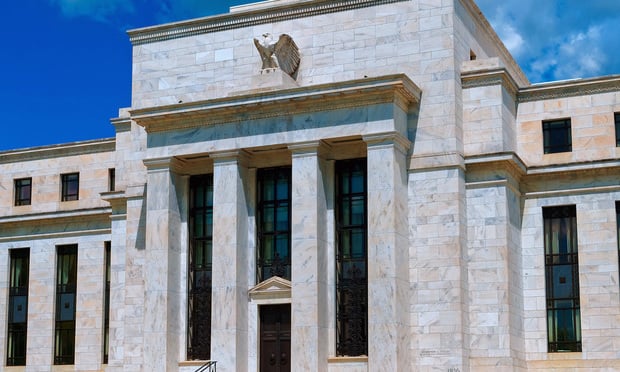 Credit/AdobeStock
Credit/AdobeStock
Members from nine financial industry trade organizations asked the Federal Reserve to reject any merchant requests for further changes to Regulation II governing debit card interchange fees. Plus, the groups stated they are in the dark as to what the proposed changes might be and demanded the Fed share those details ahead of a board of governors meeting scheduled for Oct. 25.
In a letter sent to Federal Reserve Chair Jerome Powell on Friday, the nine organizations (American Bankers Association, American Association of Credit Union Leagues, Consumer Bankers Association, CUNA, Electronic Payments Coalition, Independent Community Bankers of America, Mid-Size Bank Coalition of America, NAFCU and the National Bankers Association) stated, "The merchant petitions and presentations to the Board demanding action on Regulation II are riddled with errors, misleading statements, and false comparisons that appear designed to deceive. As in the merchant groups' litigation against the Federal Reserve on Regulation II, there is consistent cherry-picking of facts and omission of 'inconvenient evidence' that contradicts their advocacy efforts."
Recommended For You
The letter continued, "We urge the Board not to be misled. Contrary to merchant talking points, Regulation II has caused significant real-world economic harm to our members and their customers — and its recent expansion by the Board is compounding that harm. The Durbin Amendment's 'exemption' of smaller financial institutions has proven to be largely illusory, as the Federal Reserve's own data shows that regulatory thresholds in the interchange market do not insulate smaller issuers from harm."
According to a statement from CUNA, the groups are discouraged that the Federal Reserve has "refused to acknowledge that community financial institutions are facing rising costs and falling revenues because of existing Regulation II rules."
"Adding to this disappointment is the Board's willingness to acquiesce to merchant requests regarding practices they consider to be 'unfair,'" the letter stated.
"While we acknowledge and appreciate the important role that merchants play in the payments ecosystem, ensuring the soundness and sustainability of all stakeholders, including debit card issuers of all sizes — including community banks and credit unions, many of which are already facing rising debit costs and declining interchange revenues — is, in our view, a more important policy imperative for a financial regulator. The manipulation of card-not-present transactions is introducing fraud risks and creating operational problems for debit card issuers. The cumulative and underappreciated result of these developments is a reduction in consumer access to affordable core financial products and higher costs."
The organizations asked the Fed for a chance to meet with officials prior to any vote on the interchange issue to help set the record straight.
"Neither the flawed petition nor the subsequent and similarly flawed meeting materials should form the basis for the Board's posture on these issues," the groups stated.
"This is not merely a question about routing or interchange, and it does not only affect thousands of financial institutions. Hundreds of millions of consumer checking accounts are inexorably linked to debit card processing and as the Supreme Court has found, cardholder interests matter too."
© 2025 ALM Global, LLC, All Rights Reserved. Request academic re-use from www.copyright.com. All other uses, submit a request to [email protected]. For more information visit Asset & Logo Licensing.








